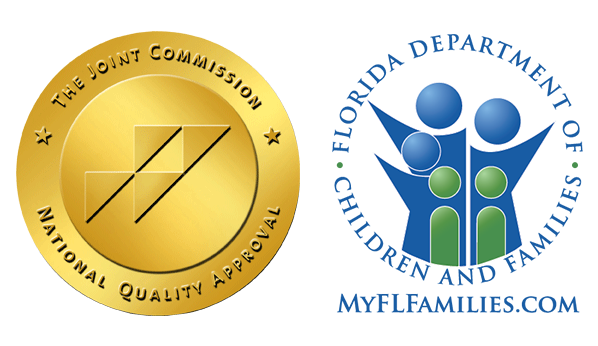Alcoholism, or alcohol use disorder (AUD), is a condition that affects millions of people worldwide. Like many other psychological disorders, alcoholism doesn’t just impact the person suffering. Alcohol addiction is often known as a family disease, and the emotional distress is often felt by the whole family, including partners, children, and other family members.
Sadly, living in an environment with somebody struggling with alcoholism can lead to distress, tension, complicated relationships, lower marital satisfaction, and domestic disputes — all of which can put family members affected by alcoholism under a lot of strain.
While alcohol affects the sufferer’s behavior to a point where it may seem irreversible, it can also contribute to other mental health disorders, such as depression and anxiety. Though it may seem impossible to achieve sobriety, with appropriate support, commitment, and a treatment program, freedom from alcoholism is possible.
What Is Alcohol Addiction?
Across the United States, it’s estimated that 6.7% of American adults who consume alcohol will develop an AUD. However, the intensity of the disease depends on how frequently they drink and the alcohol they choose, causing the forms of alcoholism to vary considerably. Some individuals who abuse alcohol and develop alcohol problems may drink throughout the day, while others might remain sober for some time before binge drinking.
Despite alcoholism having different forms, alcohol addiction arises when an individual depends on alcohol to function. When drinking problems arise, staying sober for an extended time can seem impossible. Unfortunately, alcohol is tolerated, accepted in many cultures, and consumed socially. Because of this, identifying an addiction can be difficult. Though many people who abuse alcohol develop an AUD, others consume it without developing an addiction.
The Symptoms of Alcohol Addiction
Noticing the difference between someone who enjoys alcohol in a healthy manner and someone with an addiction is a challenging but crucial step to addressing the problem. If family members are concerned about a loved one and believe they have developed a substance use disorder (SUD), reviewing the symptoms of alcohol abuse is essential. Although they differ significantly, some common symptoms include:
- Consuming a large quantity of alcohol
- Frequently drinking
- A high alcohol tolerance
- Drinking throughout the day
- A fixation on alcohol
- Relationship changes
- Changes in social circles
- Losing contact with friends and loved ones
- Hiding alcohol or empty bottles
- Depending on alcohol to function
- Depression
- Trouble sleeping
- Difficulty doing everyday things such as going to work
- Serious financial problems
- Increased risk-taking
As addictions gradually get worse over time, identifying the early warning signs of addiction can differentiate between recovery and staying in the grips of addiction. If comprehensive treatment and immediate assistance are accessed, an individual living with an alcohol addiction may be able to avoid the long-term negative health consequences associated with the disease.
How Does Alcohol Abuse Affect Relationships?
Drinking moderately and safely can be a harmless activity. Yet, when drinking alcohol begins to impact an individual’s life, and any of the symptoms above are identified, it could indicate that they are abusing alcohol.
In addition to affecting an individual’s physical and psychological health, addiction can affect relationships in many different ways, such as:
- Unhappiness in the relationship
- An increase in existing issues
- Physical abuse
- Sexual abuse
- Emotional abuse, such as using insults, threats, humiliation, intimidation, or manipulation
- Feeling unsafe
- Reduced intimate relationships
- Negative interactions
- Verbal aggression
- Financial troubles
Alcohol Use Disorder and Relationships
As alcohol controls an individual’s thoughts, it can increase the likelihood that other people’s actions or behaviors will be misunderstood. Often, when under the influence, this leads people to believe that violence is a justifiable response to stress. However, alcohol abuse is never an excuse for domestic violence.
If domestic or intimate partner violence is encountered, help must be sought immediately.
Children and Alcoholism – A Family Disease
12.1% of children under 17 in the US live with at least one parent or parental figure who has an AUD. Unfortunately, growing up in an environment where alcohol addiction is present can impact the parent-child relationship and child development. Addiction can also have long-term consequences on a child’s well-being, as it can alter their perceptions of themselves, the world, and how they communicate and relate with others.
Children living in a house with a caregiver who has an alcohol addiction may experience some of the following challenging emotions:
- Shame or guilt – Some children may feel responsible for the cause of addiction.
- Depression – In some instances, children can develop depression due to feeling alone and helpless.
- Stress – Due to the adverse effects addictions can have, children may constantly worry about the well-being of their parents or caregiver, causing them to experience severe stress.
- Embarrassment – Children may feel ashamed about the situation and avoid talking about it or allowing anyone, such as friends, to get close to them.
- Anger – When a parent struggles with an addiction, it is not uncommon for a child to feel let down and frustrated.
- Distrust – Children of those suffering from alcohol addiction may feel unable to rely on or trust any adults – sometimes, this fear is related to domestic violence.
- Detachment – Some children may feel emotionally stunted or unable to form attachments due to a fear of being hurt.
In addition to the emotional factors noted above, other indicators could signal a child is experiencing a problematic home environment due to alcohol addiction. These indicators may include:
- Difficulties at school
- Lower grades
- Missing class
- Misbehaving
- Loneliness
- Approval-seeking
- Low self-worth
- Fear of abandonment
- Relying on others
- Impulsive destructive behaviors, such as stealing, fighting, or using substances
- Distrusting adults
- Being suspicious about teachers or other adults
- Physical or behavioral signs of abuse
It can be extremely challenging for children to express how they feel about addiction and its impact on them. For this reason, they often learn to manage their emotions in different ways. They may take on a lot of responsibility and behave as a caregiver with their siblings and friends. They may also push themselves extremely hard in school and activities to compensate.
For some young people, unresolved feelings from their home environment may affect them in the future.
Support for Family Members
When an individual abuses alcohol, their family members and friends may feel it is their responsibility to get help for them. However, the individual needs to seek and accept addiction treatment to take the first step towards recovery.
Though the above is true, it doesn’t mean that affected family members have to wait to start their recovery. Across the country, there are support groups designed specifically for families affected by a loved one’s drinking. These groups focus on family therapy and education around substance abuse and often delve into mental health problems to ensure those affected have an opportunity to address their well-being and mental health.
When the time comes for an individual struggling with addiction to seek treatment, treatment programs that incorporate family therapy can be taken advantage of. Here, the family unit can learn how to communicate better, overcome family problems, rebuild any trust that may have been broken at the height of alcohol addiction, and seek family counseling. Some treatment facilities may also provide resources for families, such as housing, employment, childcare, and healthcare.
At The Beachcomber, we can assist the entire family in overcoming the impact of alcoholism and inform you of addiction treatment available. For more information, contact us today.












